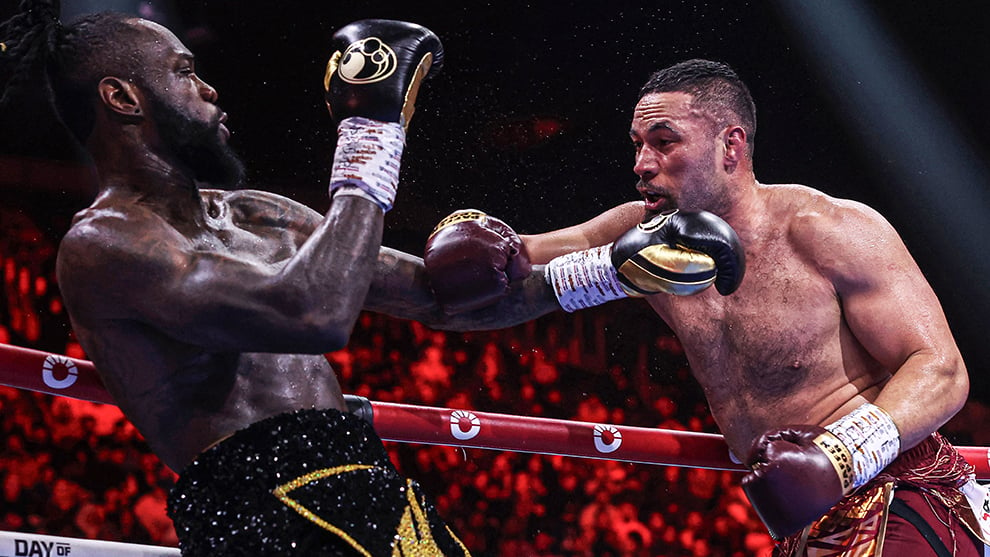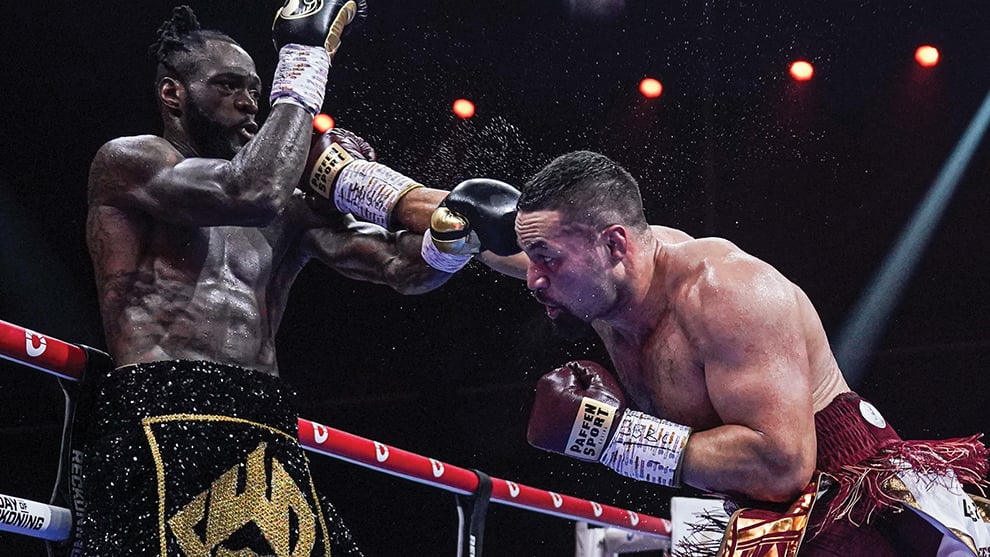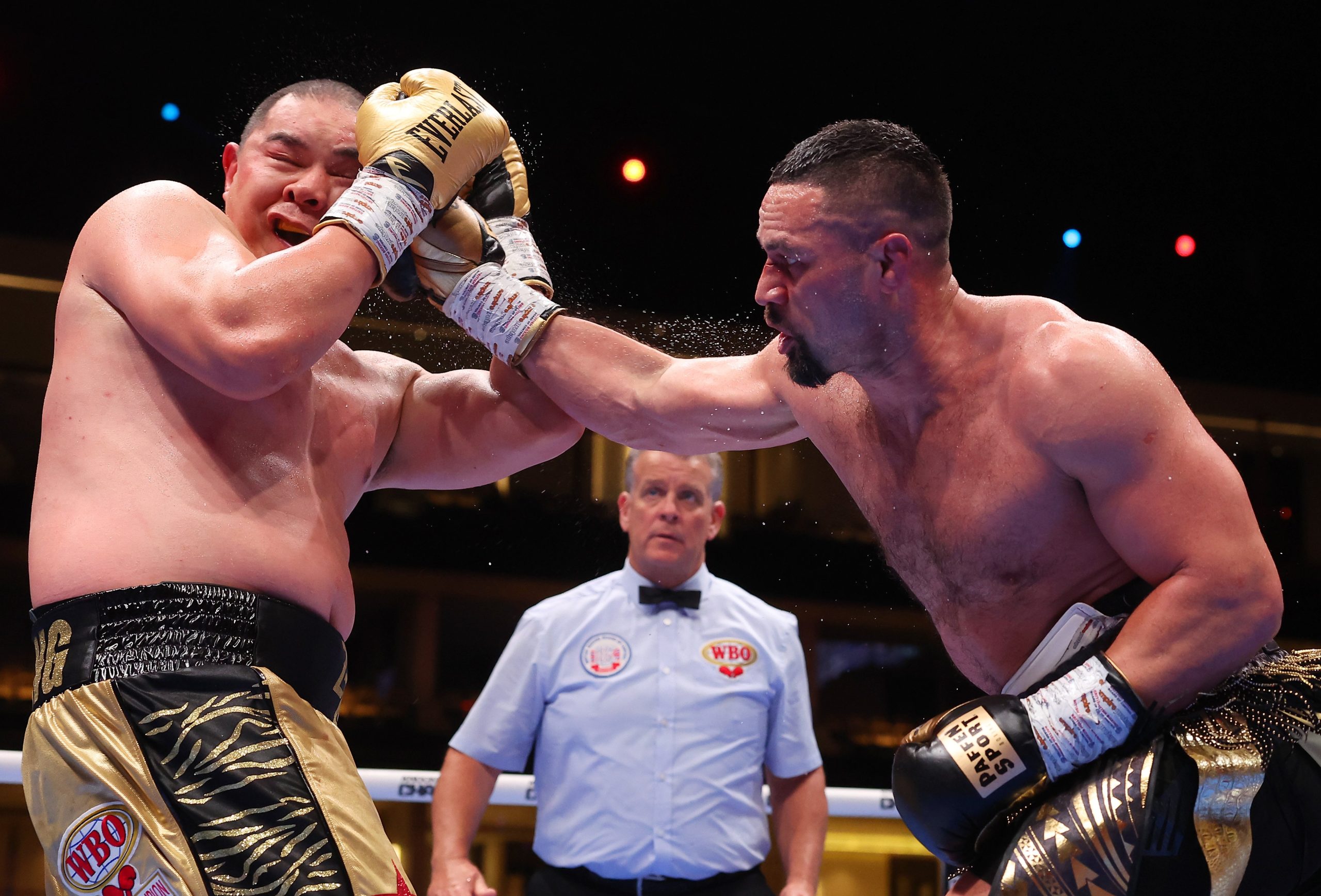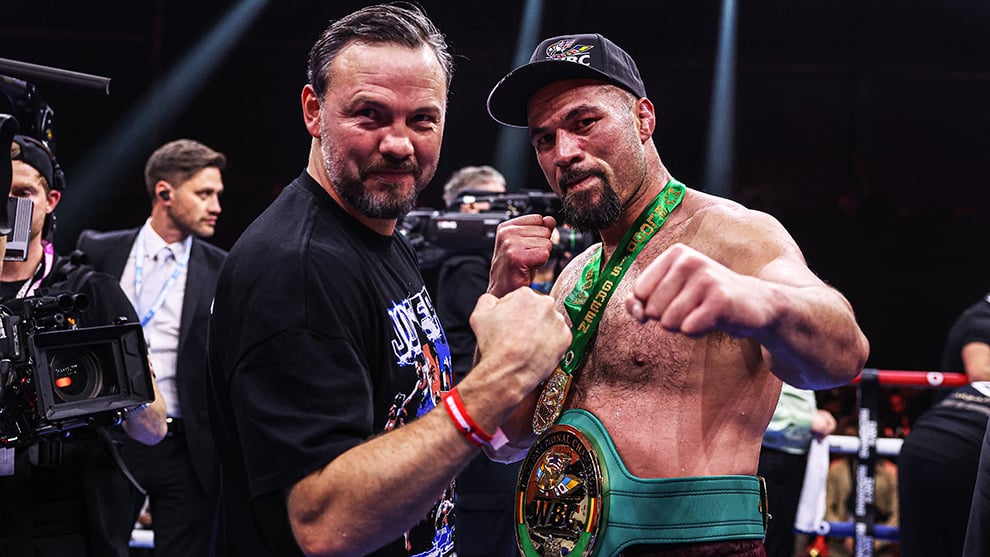By Elliot Worsell
According to experts, having a well-defined plan is crucial for successfully converting a penalty kick. This plan should encompass the technique of striking the ball as well as the specific target area in the goal. It is important to adhere to this plan without doubting or wavering. The reason being that any deviation from the plan can lead to uncertainty and the possibility of getting stuck between different ideas, resulting in a risky and uncertain situation.
In the world of boxing, a similar principle seems to hold true. While a fight may not offer the same instantaneous decision-making as a penalty kick in soccer, a boxer’s success heavily relies on their determination and capability to execute a well-defined strategy. The more concise and coherent the plan, the simpler it becomes for the boxer to adhere to it and put it into action. When a boxer firmly believes in the effectiveness of their plan, they are less likely to stray from it or doubt themselves or their coach.
However, the ability to adapt and change, even during the week leading up to a fight, is crucial, as heavyweight boxer Joseph Parker, with a record of 35-3 (23), has recently discovered. In December, he found himself in a situation where he had to make significant adjustments, and what made it even more daunting was that he had only five days left before the fight, which was considered the most perilous of his entire career.
Andy Lee, Parker’s coach, clarified, “Our original strategy involved incorporating extensive movement and boxing techniques. I firmly believe that Joe possesses superior technical skills compared to Deontay Wilder, yet Wilder possesses an unorthodox ability to swiftly attack from a distance and deliver rapid strikes.”
“However, the more I watched Wilder, the more my opinion of him changed. Which is why, on the week of the fight, I said to Joe, ‘Joe, we’ve got to punch with him. We’ve got to change what we were going to do. When he throws his right hand, that’s when he will be most vulnerable.’
During the span of Tuesday to Saturday, our main focus was on perfecting the technique of throwing the right hand in sync with his opponent’s movements. Additionally, we emphasized the importance of Joe moving his head to the left while delivering a powerful right hook from above. These tactics were effective in making Wilder feel uneasy and hesitant, ultimately putting him on the defensive.

During their heavyweight bout at Kingdom Arena on December 23, 2023 in Riyadh, Saudi Arabia, Joseph Parker demonstrates superior boxing skills, outmatching Deontay Wilder. (Richard Pelham/Getty Images)
Surviving and defeating Wilder is far from easy, despite the notion that it may sound simple. Even though Lee has successfully coached boxers like Tyson Fury and Joseph Parker to victories over Wilder, he remains hesitant when asked about the game plan for fighters attempting a similar feat. Lee is all too aware of the intense pressure of watching Wilder in the ring for 12 rounds, hoping that the lead built by his opponent will not be instantly destroyed by one powerful swing of Wilder’s right hand.
“There isn’t a set formula,” Lee stated. “I don’t possess a hidden technique for accomplishing this. Tyson and Joseph have distinct boxing styles. Tyson possesses both size and a commanding presence. He has the ability to assert himself aggressively and force Wilder into a defensive position.”
Our main focus with Joseph was to constantly present a threat and keep Wilder on edge, preventing him from unleashing his powerful right hand. Even during moments of rest, it was crucial to maintain a poised and ready appearance. We emphasized the importance of posture and appearance, making sure Joseph appeared alert and engaged, while actually allowing himself to rest. This aspect was a significant part of our training regimen.
Even if you do everything correctly, things can still go terribly wrong when facing a powerful puncher like Wilder. This is a fact that every opponent of Wilder must surely comprehend when agreeing to fight him and while dedicating 10 weeks to training their body and devising a strategic plan. Under no circumstances should one get caught up in their own accomplishments while in Wilder’s presence, and never assume the fight is finished until either the final bell sounds or the referee declares Wilder unable to continue by crossing his arms.
“Lee affirmed that feeling secure around Wilder is impossible. One can never assume a comfortable 10-round lead and adopt a complacent strategy of boxing and moving. At any given moment, he possesses the ability to seize an opportunity and eliminate you.”
The Wilder and (Zhilei) Zhang fights differed significantly in terms of the progression of time. During the Wilder fight, I vividly recall glancing at the clock and realizing it was only round three, yet it felt as though we had been engaged in the battle for an eternity. The rounds were seemingly elongated, dragging on and on. On the contrary, the Zhang fight swiftly passed by. Suddenly, we found ourselves in the eighth or ninth round, with the end within reach. The Wilder fight demanded unwavering focus throughout every second of each round, a sentiment that can also be applied to the Zhang fight.

Getty Images capture Joseph Parker launching an assault on Deontay Wilder.
When it came to Zhilei Zhang, who fought against Parker on March 8, there were noticeable distinctions between him and Wilder. However, Parker’s objective and approach remained unchanged, to a certain extent. Interestingly, the encounter with Wilder in the ring, where Parker successfully neutralized his threat by introducing uncertainty to a usually confident opponent, certainly aided him against Zhang. Zhang, a left-handed fighter brimming with momentum and confidence, shared similarities with Wilder in terms of relying on one-punch victories.
Lee stated, “We work together to develop the game plan, and it’s crucial that you follow it. If Joe doesn’t trust and execute the instructions I give him, our strategy won’t be successful. Therefore, we have discussions and find solutions while training in the gym and working on the pads. Initially, Joe was hesitant to adopt a conventional defensive stance and movement (against Zhang). I suggested emulating Evander Holyfield’s approach against Riddick Bowe – staying light on your feet, focusing on boxing techniques, maintaining a rhythmic footwork, throwing punches consistently, and then maneuvering.”
Joe, although primarily a boxer, still desires to exhibit aggression and remain on his feet. I supported his decision and, similar to the Wilder fight, our strategy centered around constantly posing a threat. We aimed to be in a position to strike at all times, preventing our opponent from freely attacking. By maintaining this defensive approach, our opponent was constantly on edge. While the fight may not have been action-packed, Joe’s success was attributed to his ability to showcase threat and employ numerous feints. Feints hold great significance in these fights, a tactic often overlooked by many but crucial for success.
“Due to his size and physical presence, Zhang posed more challenges than Wilder. With a weight difference of 47 pounds, he was truly imposing. Additionally, Zhang being a southpaw added another layer of difficulty. Joe had only encountered one southpaw in his career, and it didn’t go well. In fact, whenever we discussed potential opponents, both Joe’s manager and I were hesitant to face southpaws. So, defeating Zhang, a formidable southpaw, proved to be a significant mental triumph for Joe. He had conquered one of the most treacherous southpaws in the division.”

During their heavyweight fight in Saudi Arabia, Joseph Parker throws a right hand punch at Zhilei Zhang.
Parker’s advantage in this mission was undoubtedly his coach, Lee, a former WBO middleweight champion who fought as a southpaw during his career. What made Lee even more formidable was his experience as a left-handed boxer who knew how to maximize the effectiveness of the southpaw stance. Lee utilized his height, reach, and footwork to unsettle opponents before delivering a powerful right hook to finish them off. By teaming up with Lee, Parker gained valuable insight and inside knowledge on how to handle southpaws, something he had previously been lacking.
Lee expressed his disagreement with the widely accepted notion of positioning one’s foot on the outside of a southpaw. As a former southpaw himself, he felt comfortable with his foot on the inside. He also disagreed with the advice of always moving to the southpaw’s right in order to evade their left hand. According to Lee, moving into the southpaw’s left hand actually provided more distance, time, and space to assess the situation. He believed that these commonly heard strategies did not hold much value and only revealed one’s limitations. Lee personally did not prioritize getting on the outside of his opponent’s left foot, as he considered it to be only one of many factors that could influence the outcome of a fight. While acknowledging that such techniques could be effective, Lee believed they should not be the sole focus of one’s strategy.
“The thing with Zhang, which kept the nerves high, was that he would always punch after you punch,” added Lee. “Joe had to punch and then be very careful after the punch. He had to either defend with movement, clinch, or just smother him a little bit. He fought a very smart fight in that sense. Zhang was always, always there.”
In addition to Zhang’s constant state of readiness to unleash his explosive power, he achieved something that eluded Wilder during their 12-round bout with Parker – he managed to knock him down not once, but twice.
Lee explained, “It’s possible to win a round and then get knocked down, especially when facing a powerful puncher. Just observe Joe’s response and how he managed to rise. The second knockdown was particularly risky as it was a right hook to the back of the head, but Joe managed to stand up again and promptly followed the instructions given to him in that crucial moment. I advised him to stay composed, make intelligent decisions, defend himself, and engage in close combat. After returning to the corner, he was perfectly alright.”
Parker’s ability to overcome not just one, but two mini crises, can be attributed to his conditioning, which Lee acknowledges George Lockhart for, as well as the peaceful environment they found themselves in. It is evident that facing a crisis becomes more manageable when given the opportunity to reflect and make sense of the situation.
Lee explained, “The atmosphere in the Saudi (Arabia) arena during the fights is incredibly hushed. Joe, Zhang, and Wilder were able to hear every single word I uttered. This creates a psychological aspect to consider. I vividly recall during round nine or 10, I uttered, ‘Joe, he’s exhausted. Seize the opportunity.’ In response, Zhang glanced at me and replied with a statement. Even that simple exchange must have planted the idea of fatigue in his mind.”
During the second match against Derek Chisora at Manchester Arena, Joe was unable to hear any of my instructions. However, in Saudi, I can easily guide him through each round with my words.
The level of trust Joe places in me and my words is unparalleled. I have the ability to suggest any move, and he executes it without hesitation. It brings me immense satisfaction to witness such unwavering trust in me, knowing that he will comply with whatever I propose. Even if I were to instruct him to throw a potentially risky uppercut, he would promptly carry it out.

Lee and Parker rejoice in their victory over Deontay Wilder (Richard Pelham/Getty Images).
Describing someone as a puppet master or the one pulling the strings may have negative implications, but when it comes to Lee and Parker, it seems fitting. If not the puppet master, we can think of Lee as the one operating the machine or the kid with the PlayStation controller. Regardless of the analogy, belief is always the driving force. While Parker’s belief in himself is crucial, equally important is Parker’s belief in the person directing his actions and timing.
“Belief is a big thing,” said Lee. “Whenever I would watch Joe from ringside – while doing commentary – I would see the things he could do. Then, in sparring and in the gym, I’m watching him and I’m thinking, Joe can beat all these guys. It’s just about instilling that belief.
Since the defeat against Joe Joyce, several factors have contributed to his remarkable transformation. However, the crucial element has been his consistent involvement in fights. By seamlessly transitioning from one match to another and maintaining a regular training routine, he has experienced significant progress. Unlike before, he doesn’t have to start from scratch after a prolonged break and reacquaint himself with the instinctive actions he should be performing. Instead, these actions are gradually becoming second nature to him.
“He is collaborating with George Lockhart, who handles his strength and conditioning. George used to be his nutritionist, but I suggested he give strength and conditioning a shot, and it has been incredibly successful. We function as a team of three, and I can’t claim all the credit. Joe’s capability to maintain and perform his duties in the ring is solely possible because of his fitness and conditioning. Without it, his efforts would not be sustainable.”
Training with Adam (Booth, Lee’s former trainer) pushed me to a whole new level, both physically and mentally. The intensity of the workouts, from track sessions to treadmill sprints, circuits, and weightlifting, was something I had never experienced before. These grueling sessions not only built my physical strength but also forged a newfound mental toughness and determination within me. The effort and sacrifice involved were undeniable.
Andy Lee has paid his dues as a fighter and coach for thirty years, both in terms of money and personal sacrifice. Today, Joseph Parker, having experienced the agony of defeat and using it as a catalyst for growth, stands before us with open hands, ready to reap the rewards. He unquestionably deserves every cent.
